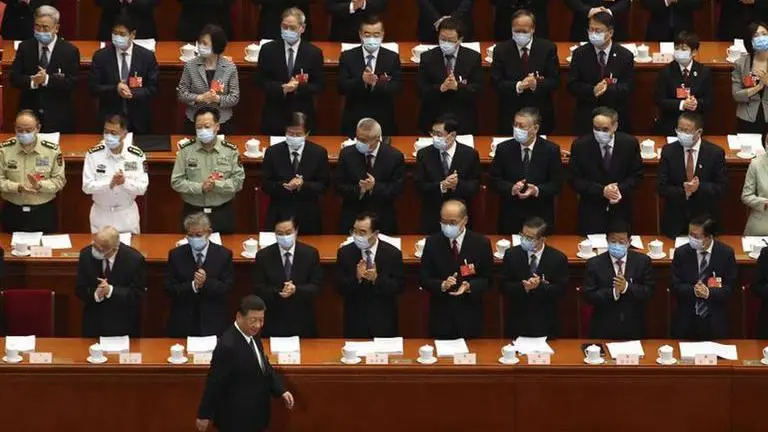Updated 22 May 2020 at 16:17 IST
China tries to impose security law in Hong Kong for greater control
China's legislature will take over long-stalled efforts to enact national security legislation in Hong Kong, a move that could limit opposition activity in the semi-autonomous territory.
- World News
- 3 min read

China's legislature will take over long-stalled efforts to enact national security legislation in Hong Kong, a move that could limit opposition activity in the semi-autonomous territory and signals the central government's determination to take greater control after months of pro-democracy protests last year.
The National People's Congress (NPC), which started a one-week annual session on Friday, has delivered a bill on "establishing and improving the legal system and enforcement mechanisms for the Hong Kong Special Administrative Region to safeguard national security."
While presenting the bill to the delegates, Wang Chen, Vice Chairman of the China's NPC, said the protests and violence in Hong Kong had seriously challenged the bottom line of the 'One Country, Two Systems' principle, undermined the rule of law, and threatened national sovereignty, security and development interests.
"Strong measures have to be taken according to the law to prevent, stop and punish them," Wang said.
Advertisement
The announcement drew sharp criticism from the US, which has threatened to withdraw preferential trade status for Hong Kong, and seems likely to prompt more protests in the short term.
Such a move has long been under consideration and was hastened by the months of anti-government protests last year in the former British colony that was returned to China rule in 1997.
Advertisement
Hong Kong's government is bound by Article 23 of the Basic Law, its constitution, to enact laws to prohibit any act of treason, secession, sedition or subversion against China.
It proposed legislation to do so in 2003, but withdrew it after hundreds of thousands of people came out to protest.
Beijing has increasingly pushed for measures such as punishment for disrespecting the Chinese national flag and anthem and increased pro-China patriotic-themed education in schools, but opposition in Hong Kong's Legislative Council makes it unlikely a national security bill could pass at the local level.
Now, China appears to be sidestepping Hong Kong's lawmaking body to enact the legislation.
"In light of the current situation of Hong Kong, we must establish and improve at the state level the legal system and enforcement mechanisms for the Hong Kong Special Administrative Region to safeguard national security, so as to change the long lasting situation of defenceless in the national security affair in Hong Kong," Wang said.
In Washington, where President Donald Trump and his top national security officials have been increasingly critical of China for both its response to the coronavirus pandemic and actions in Hong Kong, the State Department said such a move would "undermine the People's Republic of China's commitments and obligations in the Sino-British Joint Declaration."
A vote at the NPC will add to concerns in Hong Kong's pro-democracy camp that Beijing is chipping away at the territory's rights to assembly and free speech that greatly exceed those permitted by the ruling Communist Party in mainland China.
"Our aim is to effectively prevent, stop and punish any behaviour in Hong Kong that poses a serious threat to the national security with attempts of splitting the country, overthrowing the state regime, organising and conducting terrorist attacks and the activities of foreign nations and overseas forces to interfere in the affairs of the Hong Kong Special Administrative Region," Wang said.
Published By : Associated Press Television News
Published On: 22 May 2020 at 16:17 IST
